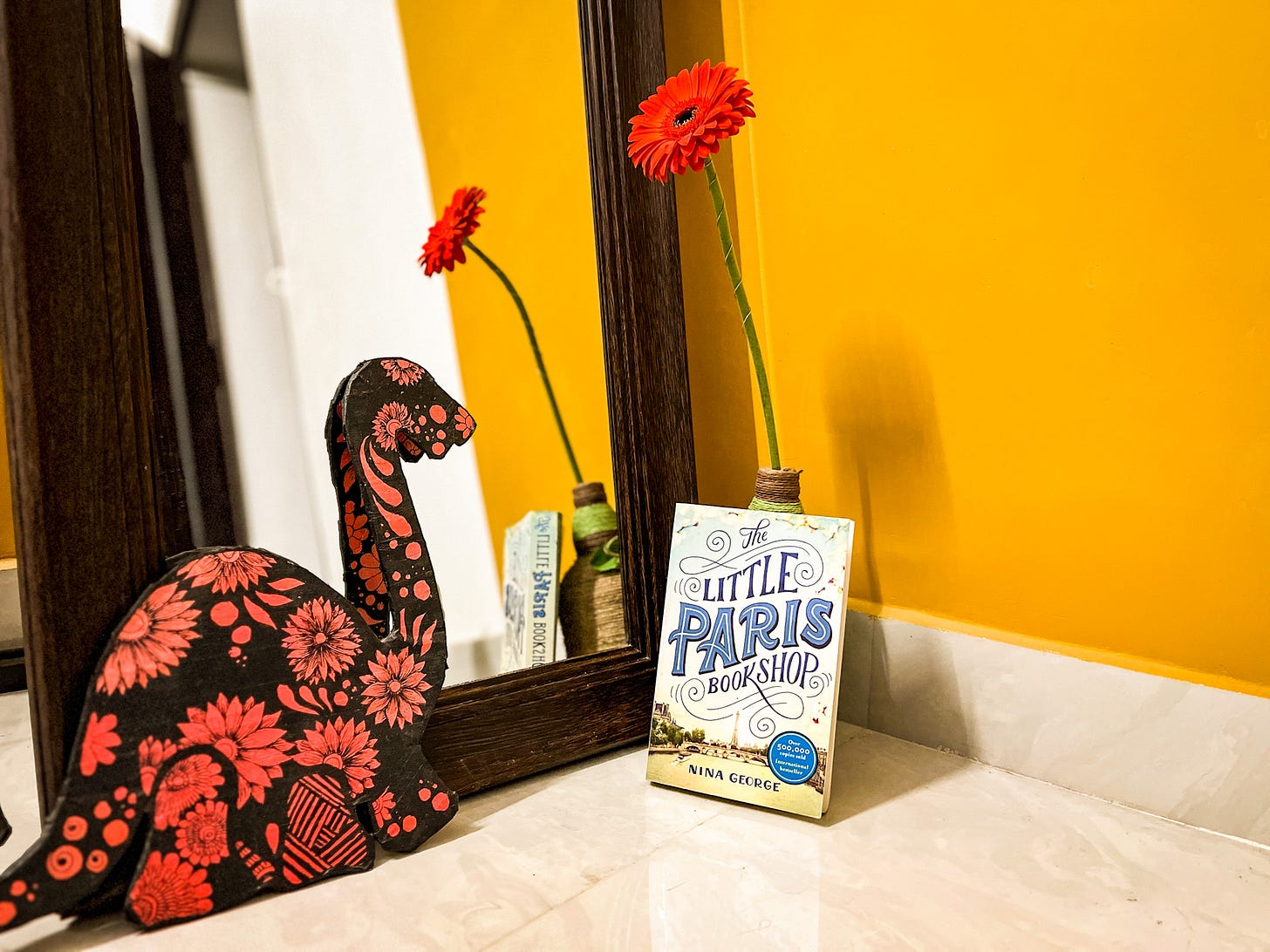The Little Paris Bookshop
“There are books that are suitable for a million people, others for only a hundred. There are even remedies — I mean books — that were written for one person only.”
The Little Paris Bookshop is Nina George's (German; born 30 August 1973) best-known work. As of 2015, this best-selling book had been translated into more than 28 different languages and had more than 500,000 copies sold. Over a hundred short pieces, more than 600 columns, and 26 volumes (novels, mysteries, and non-fiction) have all been published by the author. George has experience working as a managing editor, columnist, and cop reporter for various newspapers.
Simon Pare's English translation of The Little Paris Bookshop, which was initially written in German and deals with loss and mortality. However, as the exploits of George's protagonist bookshop continue, themes of love, human connection, and self-healing begin to bubble up.
The book is available on Amazon in all possible versions (hardcover, paperback, Kindle edition, and audiobook).
“Loving requires so much courage and so little expectation.”
Monsieur Jean Perdu, owner of a literary apothecary book boat on the Seine in Paris, with his keen insight into what a person needs and can recommend books to address issues for which there is no other remedy. Despite his capacity to use literature to heal the shattered hearts of countless others, he is unable to do the same for his own biggest grief. A grieving guy who spent 20 years stewing in his misery was left with nothing more than a note.
Perdu decides to confront his problems from the past and find a way to go on in life after being made to read the unread letter from a former lover. The Little Paris Bookshop, an international bestseller that is warm and exciting, is a love letter to books for anybody who believes in the ability of tales to influence people's lives.
“I wanted to treat feelings that are not recognized as afflictions and are never diagnosed by doctors. All those little feelings and emotions no therapist is interested in because they are apparently too minor and intangible.”
The intricacy and significance of grieving are both explored in this book. It took me some time to decide how I felt about it, but the more I thought about it, the more I realized that while the book is wonderfully written, the tale may not be all that compelling. You're pulling for Perdu the entire time, hoping he achieves the tranquilly he deserves since it's a narrative of self-discovery. Although you empathize with the protagonist, a sense of belonging is missing. I couldn't help but feel a growing feeling of dissatisfaction as I read more of this book. Yes, it would be wonderful if Jean found peace in his life, but if not, what can you do? was my reaction during my read. I've read a lot of books in the 29 years of my life, but I can't recall ever encountering a character whose fate didn't matter to me.
There are a lot of love tales out there that deal with love, romance, happiness, as well as sadness, loss, and agony; some of them are fantastic, while others aren't so much, but I've never been let down by any of them.
This story wasn't at all what I was anticipating, and some of the behaviours of certain characters were simply unethical. I don't want to reveal any of the book's secrets, but I did find some of the scenarios and their justifications to be a little off-putting.
“A book is both medic and medicine at once. It makes a diagnosis as well as offering therapy. Putting the right novels to the appropriate ailments: that’s how I sell books.”
This book was initially published in German before being translated into English a few years later. Very rarely have I read a book that has been translated into English from a different language that flows the way you would expect it would. There are often weird twists of phrase or word choices, and you can kind of tell that maybe that wasn't the author's original purpose, but when it was translated into English, something just didn't connect, and I didn't find that to be the case at all with this book.
The title of the book is inconsistent with its relevance. I couldn't see how the narrative would develop at first because of the fog of beginnings. It is not about the bookstore; rather, it is about life, love, and the souls of people. The Little Paris Bookshop teaches us the importance of saying farewell before saying hello.
Given that there are so many other, better alternatives available, I would not suggest this book to anyone. Although the writing is strong and the language is clear, the work has several errors, including jarring portrayals of intimacy and protracted heart-to-hearts that might have been avoided quite simply.
“All the love, all the dead, all the people we’ve known. They are rivers that feed our sea of souls. If we refuse to remember them, that sea will dry up too”




